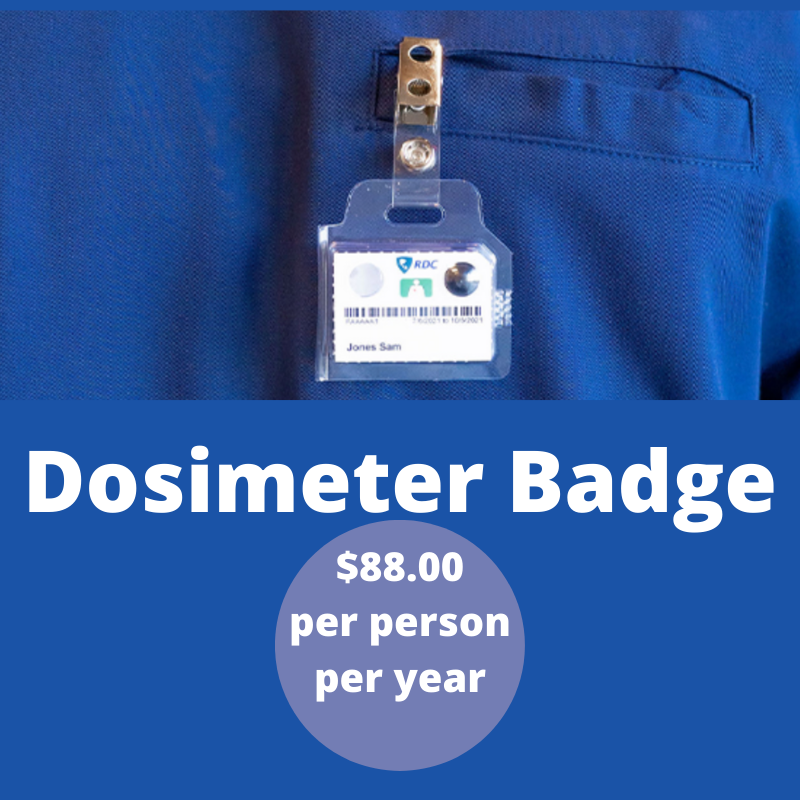Compassion Fatigue In Veterinarians: How To Deal With It
/Table of Contents
Working in the veterinary field requires a person who has an exorbitant amount of compassion and love for animals and a strong desire to help them when they are in need. Being a veterinarian can be a very rewarding and fulfilling profession; however, it can take a toll on your emotions and lead to compassion fatigue.
Compassion fatigue is a condition that occurs when veterinarians and caregivers absorb the negative energy that comes along with the not-so-pleasant aspects of veterinary medicine, such as:
Animal abuse
Difficult clients
Illness, injuries, and death
Toxic work environments
If you are a veterinary professional and would like to learn more about compassion fatigue and how you can fight it so you can focus on what you love to do, continue reading this helpful article.
Statistics Show That Compassion Fatigue is Real
In the United States, there are approximately 115,000 veterinarians currently practicing.
Studies show that approximately 16% of these veterinarians have had suicidal thoughts due to the constant stress caused by certain aspects of their profession.
Sadly, approximately 2% of veterinarians have acted upon those negative thoughts. If you do the math, that is approximately 2,300 suicides that could have been prevented if they had addressed and treated their compassion fatigue symptoms.
When other veterinary professionals and caregivers were questioned, a staggering 74% claimed to have symptoms or feelings of compassion fatigue, and around 43% had suicidal thoughts because of a toxic professional environment.
Compassion Fatigue – In-Depth Definition
Compassion fatigue is a condition that veterinarians and other veterinary professionals can fall victim to if they do not keep their emotional health in check. It can affect your mental and physical well-being if you aren't proactive.
The following list gives the dominant reasons that veterinarians and other veterinary professionals fall victim to the dreaded and sometimes unavoidable compassion fatigue:
Dealing with difficult moral and/or ethical dilemmas
Dealing with difficult clients and situations
Dealing with negative team members and/or toxic work environments
Tirelessly exhibiting empathy toward your clients and their beloved animals
Working long hours for little pay with few breaks
Compassion Fatigue – Identifying the Signs
Now that you know what compassion fatigue is, you may be wondering how to identify its signs in yourself and your veterinary team members. When emotions are high and morale is low, it affects your veterinary practice's overall well-being.
The following list will give you the signs of compassion fatigue to watch out for in your personal life, professional life, and practice environment:
Personal Life
Professional Life
Veterinary Practice
A negative change in your physical appearance/hygiene
Anxiety, depression, suicidal thoughts
Bad attitude, cynical, bitter
Changes in personality
Clumsy or accident prone where normally are not
Forgetting things
Irritable behavior
Isolating yourself from others
Lack of motivation, lethargic, lazy
Lack of self-confidence
Lack of sympathy or empathy for others
Lacking a sense of urgency
Losing interest in activities that you normally love to do
Not as patient as once was
Quick to anger
Quick to cry or become emotional
Avoid certain clients or emotionally difficult tasks and situations
Indecisiveness
Make errors in diagnosing/treating a patient
Taking excessive sick/vacation time
Team members and clients begin to complain about your attitude/performance
Try to work more to avoid dealing with your emotions
You become inefficient and/or unreliable
You become unpredictable in your quality of work
Attendance/tardiness issues among employees
Low morale among team members
Low staff retention
Unsatisfied clients due to a lack of compassion, poor veterinary care, and/or customer service
Compassion Fatigue – Addressing the Issue
Life is all about maintaining balance. When your life becomes unbalanced, the world as you know it can quickly come crumbling down around you. To prevent this from happening, it is important to maintain a healthy professional and personal life balance. For those who work in the veterinary field, this can sometimes be a very difficult thing to do.
Many people work in professions where they can easily separate their work from their personal life. People like veterinarians and other caregiving medical professionals are not able to separate the two as easily. Many take their work home with them, literally.
People who work in the veterinary field tend to be more empathetic by nature and can absorb the energy and feelings of those that they are caring for on a daily basis. It can be very hard to separate those feelings and emotions from other aspects of their lives, and before they know it, things can snowball out of control to the point of becoming burned out.
Compassion Fatigue Leads to Burn-Out
Many people in caregiving positions tend to put their patients' needs before their own, which leads to compassion fatigue and burn-out. Burn-out is another very real condition that veterinarians and other veterinary professionals experience. Often, the term is used interchangeably with the term compassion fatigue, but they are not the same thing.
Burn-out occurs when the symptoms of compassion fatigue go untreated
Once burn-out occurs, the best thing to do is take a step back and reevaluate your life and goals. You will need to decide if being in the veterinary industry is truly your passion or if it is time to move onto something else.
Preventing and Treating Compassion Fatigue
To prevent yourself and your veterinary team members from falling victim to compassion fatigue, it is important to maintain a welcoming and supportive workplace for your employees.
Many veterinary professionals state that they feel compassion fatigue and/or burn-out due to a toxic work environment. Whether dealing with difficult team members or poor management of the practice, these factors can build up and create a huge problem for a veterinary practice.
From Fatigue to Fulfillment – Making the Change
Unlike our ever-happy, four-legged friends, it is so easy for us humans to fall into the trap of negativity. For instance, you could perform nine tasks perfectly but make a mistake on the tenth task. In most cases, that is where you or your peers will aim the focus.
In general, people tend to focus on the negative aspects of life, which can easily take over the positives. Life is all about energy and balance. If you are focusing on the negative, that is what you will get back in your life.
Adversely, if you change your approach and view the positives, you will find that your "luck" will change, and things will start to go more smoothly for you. It is the basic law of attraction; the energy you put out is the energy you will get back.
Bolster Morale to Banish Compassion Fatigue
You may be wondering how you can combat compassion fatigue in your personal life and veterinary practice. Many veterinary hospitals are now being proactive by offering emotional support services for their veterinarians and other veterinary team members. The following information explains other ways that veterinary practices can help their team members avoid becoming apathetic in their personal and professional lives.
Here are some things that can be done "in-house" to bolster morale and keep compassion fatigue and burn-out at bay:
Appreciate Everyone's Contributions and Efforts
Veterinary practices can boost morale by showing their veterinarians and team members that they are valued and appreciated. When people feel that their hard work is being noticed, they are more likely to:
Get along better with their team members
Provide better care
Work harder
Boosting morale by recognizing those who are making positive contributions to the veterinary practice is sure to reduce negative feelings toward work.
Be Aware of the Signs
Knowing how to identify the signs of compassion fatigue and burn-out is crucial to maintaining a veterinary practice's well-being. By knowing the signs of compassion fatigue and burn-out listed above, you can take steps to nip a problem in the bud and keep things on the up and up.
Be Flexible When the Unexpected Happens
Life can be crazy sometimes. We cannot predict what will happen from day to day and what can come up that needs to be taken care of on short notice:
Personal affairs
Sick children,
Vehicle issues,
When these situations occur, veterinary practices should be somewhat flexible with their team members.
If someone works in an environment that is not flexible, it can cause anxiety and stress. Because, among other reasons, the employee may be worried that they may lose their job if they handle their personal business. Giving your staff the feeling of being secure in their job is important to keeping morale up.
Brief Breaks Help Staff Stay Healthy
Working in a veterinary hospital can be extremely hectic, and sometimes it is hard to find the time to tie your shoe, let alone take an actual break for a few minutes.
Although it can be difficult to schedule breaks in an unpredictable environment, veterinary practices must arrange their schedule so that everyone can take an occasional small break throughout the day to decompress.
Frequent Check-ins Reduce Issues
The best way to know how veterinarians and team members are faring is to do regular individual employee meetings to check how they feel and if they have any concerns that need to be addressed. By staying in touch with each team member, veterinary practices can ensure that any issues are being handled and everyone is getting along. When the team is happy, it shows in their work, and clients will notice too.
In addition to individual meetings, it is important to have frequent team meetings as well. These meetings are good for:
Acknowledging the hard work that everyone has been doing
Addressing any issues that may be occurring
Discussing ways to improve service and care
Providing training on new treatment methods
Team meetings don't have to be a negative experience. By adding praise and goals to the discussions, team members are more likely to comply with and promote what the practice is trying to achieve.
Education Results In Better Care
Education equals empowerment. Veterinary practices that provide virtual learning for their veterinarians and team members see an overall improvement in care and service levels. Team members also feel more valued when they see that their education is important to the practice owners.
Instilling Positivity Stops Stinkin' Thinkin'
Encouraging positive thinking and behavior among veterinarians and veterinary team members is key to keeping morale intact. Negative thoughts create negative outcomes.
Keep Up with the Times
You want to ensure that your veterinary practice performs to its fullest potential. In that case, it is important to stay current with what the industry is recommending for equipment and technology to maintain an efficient and smoother flowing environment.
When veterinarians and team members use equipment that works properly, they can focus on what they are truly there to do and care for the animals rather than constantly struggling with faulty or out-of-date equipment.
Have an Open Door Policy
Keeping the lines of communication transparent between veterinarians, team members, and practice managers can be difficult at times. It is important that employees feel that they can talk to someone when they have an issue or have a question.
Plan Your Schedule Carefully
It can be very difficult to tell a person who is requesting veterinary care that you do not have enough time in your schedule to help them. This is a major part of why those working in the veterinary profession become fatigued or burned out; it is hard to say no to an animal in need.
While it is very difficult, it is important to set scheduling boundaries with your clients, so they know what to expect and possibly offer them the number of a local emergency veterinarian if you cannot help them at that particular time.
When a veterinarian and is overbooked and overworked, their performance can be affected, and they run the risk of making poor decisions or providing rushed care which in the long run will hurt the reputation of the veterinary practice.
Recognize and Validate Team Member Concerns
When a veterinarian or veterinary team member has an issue, it is important to validate and address it quickly. When a person feels that they are being heard and respected, they are more apt to perform better and work better as a team.
Time-off Allows Mental and Physical Rejuvenation
Many veterinary practices are now requiring that veterinarians and team members periodically take time off to help them stay mentally and physically in tune. This provides the means that they can provide the best care possible. When an individual is tired or feeling the effects of compassion fatigue, they will not perform as well.
Virtual Visits Save Time
Another way veterinary practices are reducing the in-house workload is by offering virtual visits for routine and non-emergency issues. This reduces the amount of scheduling and unnecessary running around for things that can be taken care of over the phone or video and allow veterinarians and team members to focus on the patients that need the most care.
How to Say No to Compassion Fatigue in Your Life
Things you can do in your personal life to fight off compassion fatigue include:
Avoiding Isolation Reduces Negativity
To keep from falling into the trap of compassion fatigue, stay connected with friends and family. Isolation will only compound the symptoms and make things harder. Don't be afraid to talk to someone close to you about how you are feeling.
Get That Blood Pumping
Exercise is great for getting your blood pumping and staying in shape, but exercising also creates endorphins. Endorphins promote positive feelings, so the more you exercise, the better you will feel.
Get Your Z's
When you are not getting the proper amount of sleep it affects every aspect of your life. If you are tired, you are not going to perform as well as if you are well-rested. When you are tired, it results in mistakes and poor quality of work. To be in the best mental and physical state, you must get plenty of sleep.
Fuel Your Body for Sucess
Eating the proper foods and drinking plenty of water is the best way to keep your body healthy. Frequently eating small healthy meals will keep your blood sugar from dropping and causing the mid-afternoon slump. You will be more alert and generally feel better when you fuel your body with the proper nutrition.
Take the Load Off
Take some time off when you start to feel that nagging negativity set in. Make time to do activities that you enjoy.
Sometimes all we need is some time away from our regular daily grind to recharge our minds and refresh our outlook on life.
Positive Environments Curb Compassion Fatigue
Working in a positive environment allows veterinarians and team members to give the best care possible. If you are a veterinarian or a veterinary caregiver and have been experiencing any symptoms of compassion fatigue or burn-out, it is key that you evaluate your mental health and seek help when you are feeling low before it is too late.
You are not alone, and there is always help and support available for those who ask.
Sources:
(https://www.avma.org/resources-tools/wellbeing/work-and-compassion-fatigue),
(https://todaysveterinarynurse.com/articles/the-antidote-to-compassion-fatigue/),
(https://www.canadianveterinarians.net/recognizing-the-signs-of-burnout-and-compassion-fatigue),
(https://www.vetmedteam.com/library/local/compassion-fatigue-677/compassion_fatigue.pdf),
(https://www.avma.org/resources-tools/wellbeing/organizational-symptoms-compassion-fatigue),
(https://vetsuccess.com/blog/compassion-fatigue-symptoms-signs/),
(https://www.avma.org/resources-tools/wellbeing/assess-your-wellbeing),
(https://www.verywellmind.com/understanding-and-using-the-law-of-attraction-3144808),
(https://www.ovrs.com/blog/compassion-fatigue/),
(https://info.idexx.com/team-morale-typ),

























